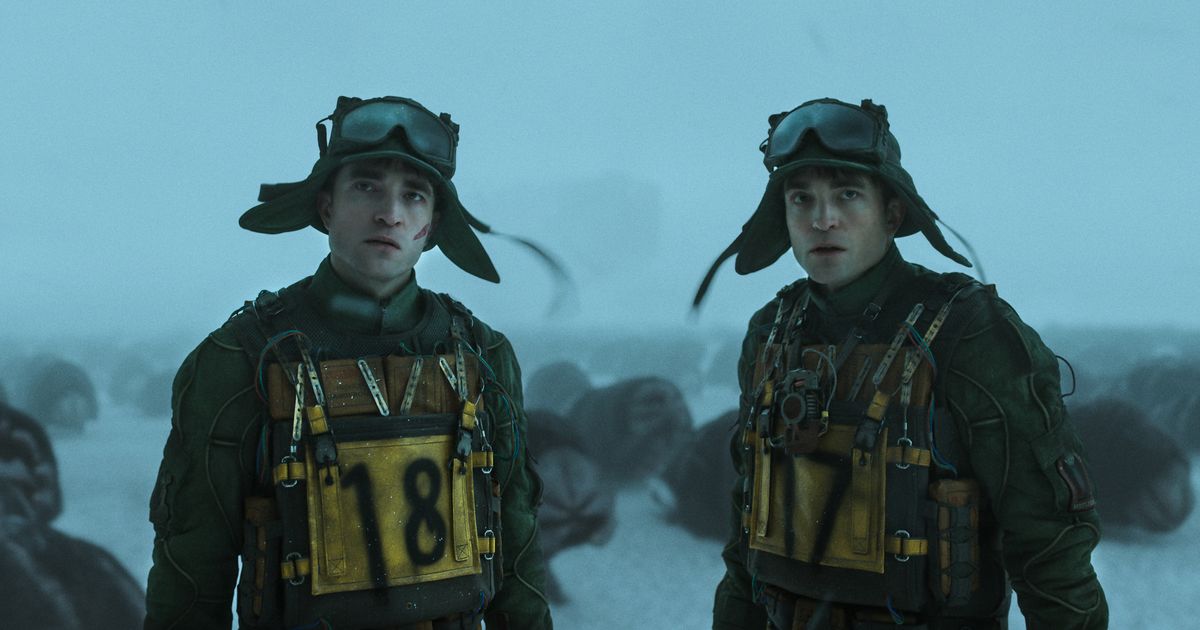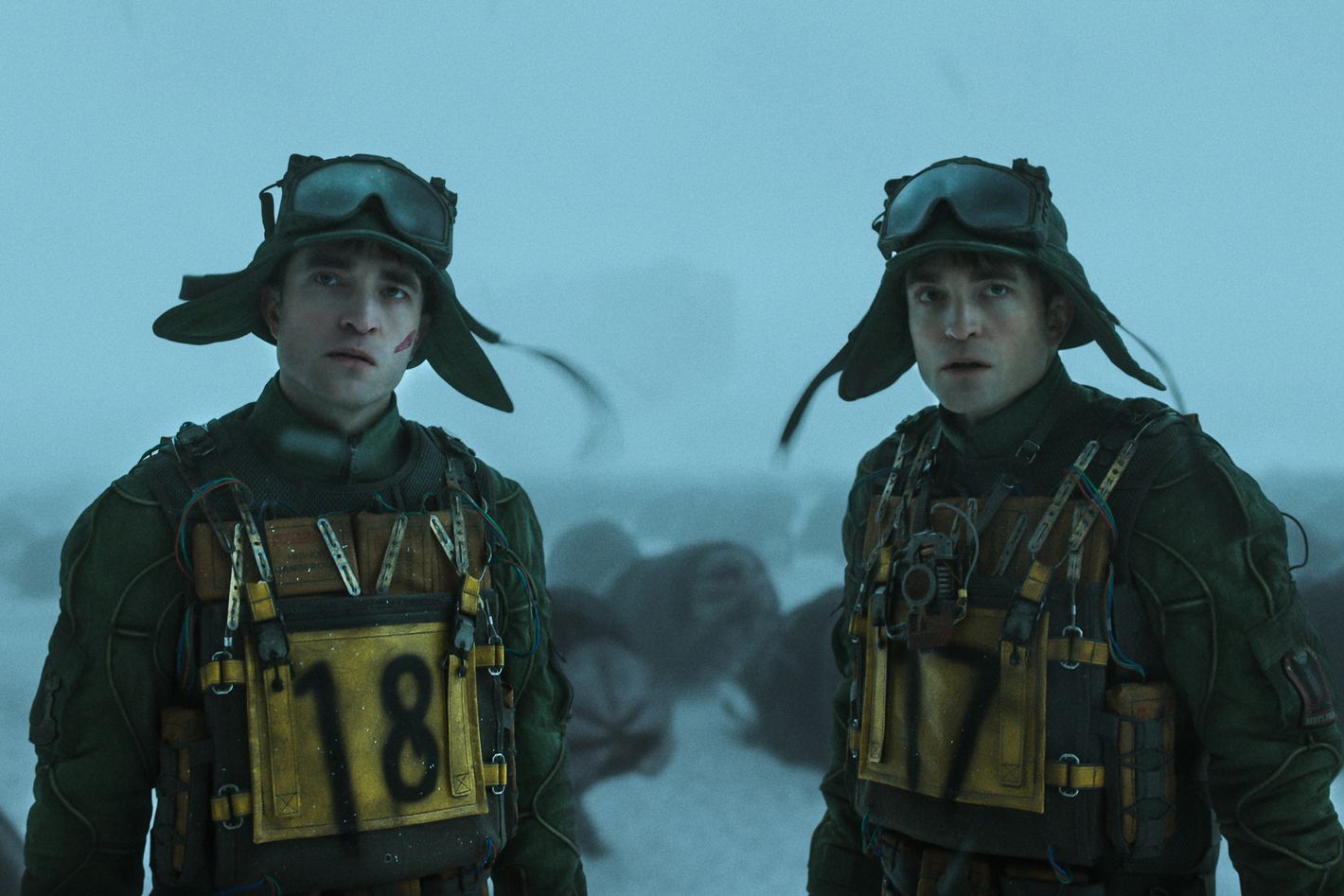With Mickey 17, Bong Joon-ho Offers a Bitterly Funny Take on America
Robert Pattinson plays an immortal drudge and Mark Ruffalo gives sci-fi Trump in the new film from the director of Parasite.


People can really learn to live with anything (derogatory). The high point of Mickey 17, Bong Joon-ho’s bitterly funny follow-up to his Oscar-winning Parasite, is a prolonged sequence in which the title character, a hapless schlub played by Robert Pattinson, explains how his life became a hellscape of technologically enabled immortality. Mickey Barnes is the “expendable” on a spaceship making a four-and-third year journey to colonize a planet balefully named Niflheim, and his job is to perish, over and over again, sometimes by design (when they need to see if there are any viruses in the alien atmosphere), and sometimes just as a side effect of how dangerous his missions tend to be. Having taken the gig to avoid an encounter with loan shark Darius Blank’s (Ian Hanmore) chainsaw, Mickey managed to find himself an escape that’s potentially even more gruesome. When he dies, and even sometimes when he’s not quite dead yet, he gets tossed into a “cycler” alongside the rest of the ship’s organic waste, then his new body is extruded from what looks like an MRI machine and his consciousness is mapped back onto the brain. This explanatory segment, a kind of grim “record scratch, freeze frame” affair, is punctuated with hilariously brutal montages that show how this cycle becomes normalized to everyone.
Distracted scientists forget to put out a gurney to catch Mickey’s latest corpus before it falls onto the floor, passengers chit-chat while the hand Mickey lost to an asteroid drifts by the window, and Mickey’s purported best friend Timo (Steven Yeun) decides it makes more sense to take Mickey’s valuable equipment back to the base while leaving Mickey to die after he falls through the snow. If the colony is Ursula K. Le Guin’s Omelas, Mickey is the sacrificial child — only he lives among the community, his torment so established that even he has stopped thinking it’s exceptional. Mickey is a sweet-natured, not terribly smart guy who, because of a childhood accident, has convinced himself that he deserves all the abuse he gets, and this naive acceptance makes the whole premise tolerable instead of just sadistic. Pattinson, now deep into his post-Teen Beat phase of playing weirdos, gives Mickey the raspy voice and hangdog expression of the loser who dies first during a heist movie. Mickey is the saint of being stepped on, until a mishap involving his presumed death under Niflheim’s ice crust and the rhythms of the printing cycle leads there to be two of him. The new guy — iteration 18 — is angrier and more prone to violence in a way that tells us every version of Mickey isn’t identical (Pattinson adroitly distinguishes the double). They’re all facets of the long-gone original, and the multiple’s existence means they’re both marked for permanent destruction.
Mickey 17, premiering Saturday at the Berlin Film Festival and landing in theaters March 7, isn’t Bong’s first English-language movie. In addition to 2013’s Snowpiercer, set on a train carrying the remnants of humanity on a never-ending loop around a ruined Earth, he made Okja in 2017, a sprawling satirical romp that spanned languages and continents as limberly as the ruthless megacorporation its young protagonist runs afoul of. But Mickey 17 is his first film to feel explicitly about America, even as it takes place in outer space. Bong specializes in crushing capitalist dystopias, whether he’s skewering present-day South Korea or an even more stratified post-apocalyptic society, and the near-future in which Mickey 17 takes place is perverse enough for each detail to constitute its own dark joke. (I personally liked the offhand mention of the disdain the colonists have for the prospect of fixing things on Earth.) The difference is that the characters in Mickey 17 who aren’t there out of sheer desperation are true believers. Some, like Mickey’s intensely competent girlfriend Nasha (Naomi Ackie), a combination police officer, fire fighter, and soldier, still place their trust in meritocracy. Others have turned to Kenneth Marshall (Mark Ruffalo), the man heading up their mission, with a blind devotion that doesn’t feel justified by Marshall’s unmistakably Trumplike qualities — and if you somehow missed the connection, his supporters wear red t-shirts and hats, just to make things extra clear.
Mickey 17 was definitely made with the expectation that Trump would lose, but unlike Captain America: Brave New World, which is like a mauled dispatch from an alternate electoral universe, Mickey 17 doesn’t come off like a failed bid for timeliness. The thought of Marshall, who in this fictional universe is merely a former congressman, getting shot into space alongside his empty-eyed wife (Toni Collette) and their most faithful followers after losing a second election does sound like wish fulfillment. But, as with our current reality, those are the people with whom we’re along for the ride throughout Mickey 17. And while Marshall is easily the worst part of the movie, with Ruffalo doing an outsized caricature of bloviating ego, and basing his performance around an unsettling flare of his lips, he’s not Bong’s focus. The movie’s more interested in why certain people are so drawn to authoritarian showmen, and, most cuttingly, what makes everyone else tolerate that kind of rule just to get by. Mickey 17 does sometimes feel like it’s cycling and reprinting aspects of Bong’s earlier films instead of just riffing on his favorite themes. In particular, the native inhabitants of Niflheim, which look like a cross between giant woodlice and star-nosed moles and yet are capable of being cute, bring to mind Okja’s super pigs, especially when one of the babies is imperiled.
What does feel fresh is the film’s interrogation into what makes someone believe they deserve to be mistreated — into internalizing not just that it’s inevitable that some people must live lives shorn of dignity and filled with suffering, but that they’re one of those people. By showing that even the most resigned of sci-fi doormats can decide to stand up for himself, Mickey 17 ends on a more hopeful note than the rest of Bong’s films. It’s more hopeful than we currently deserve.








